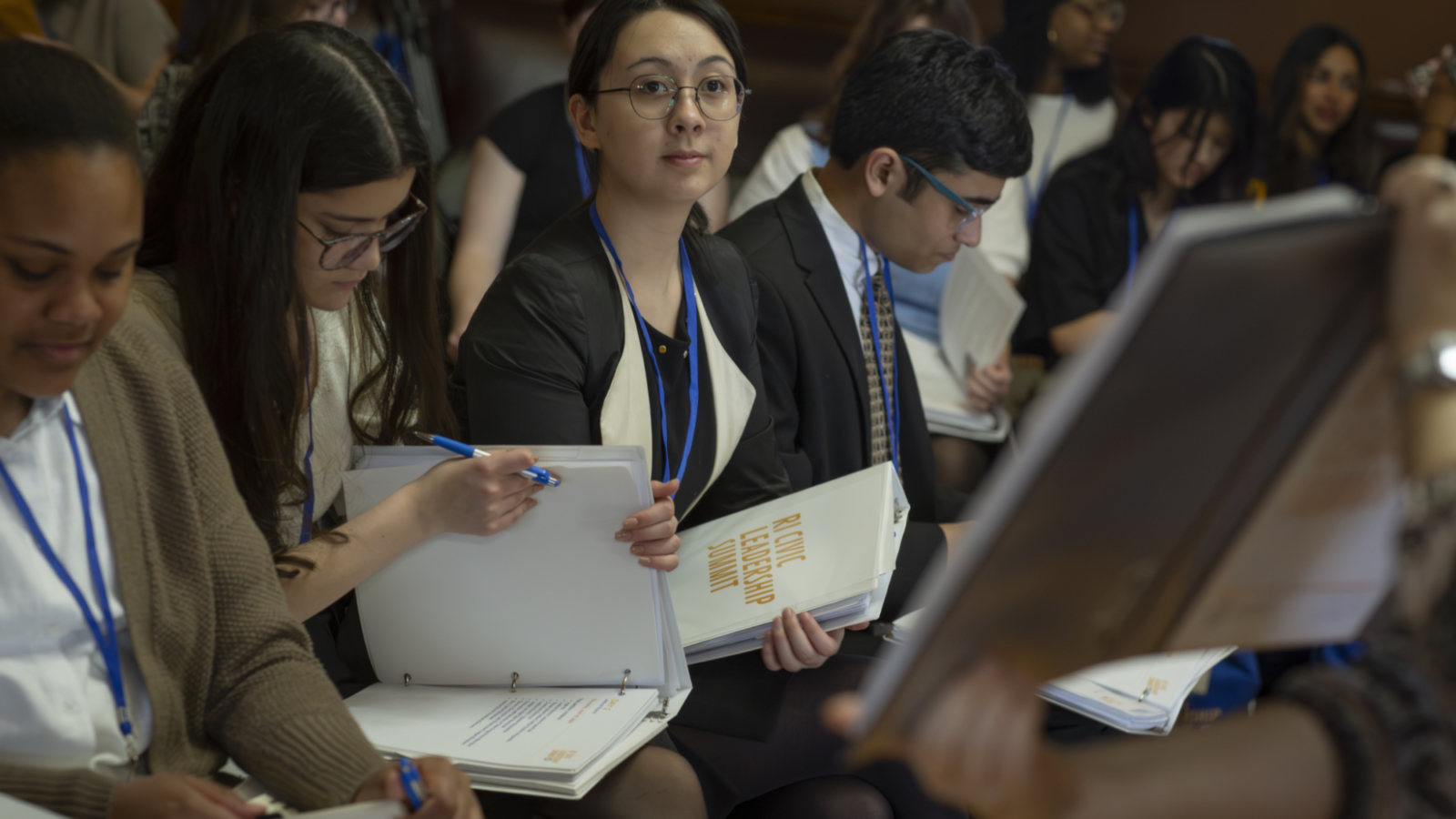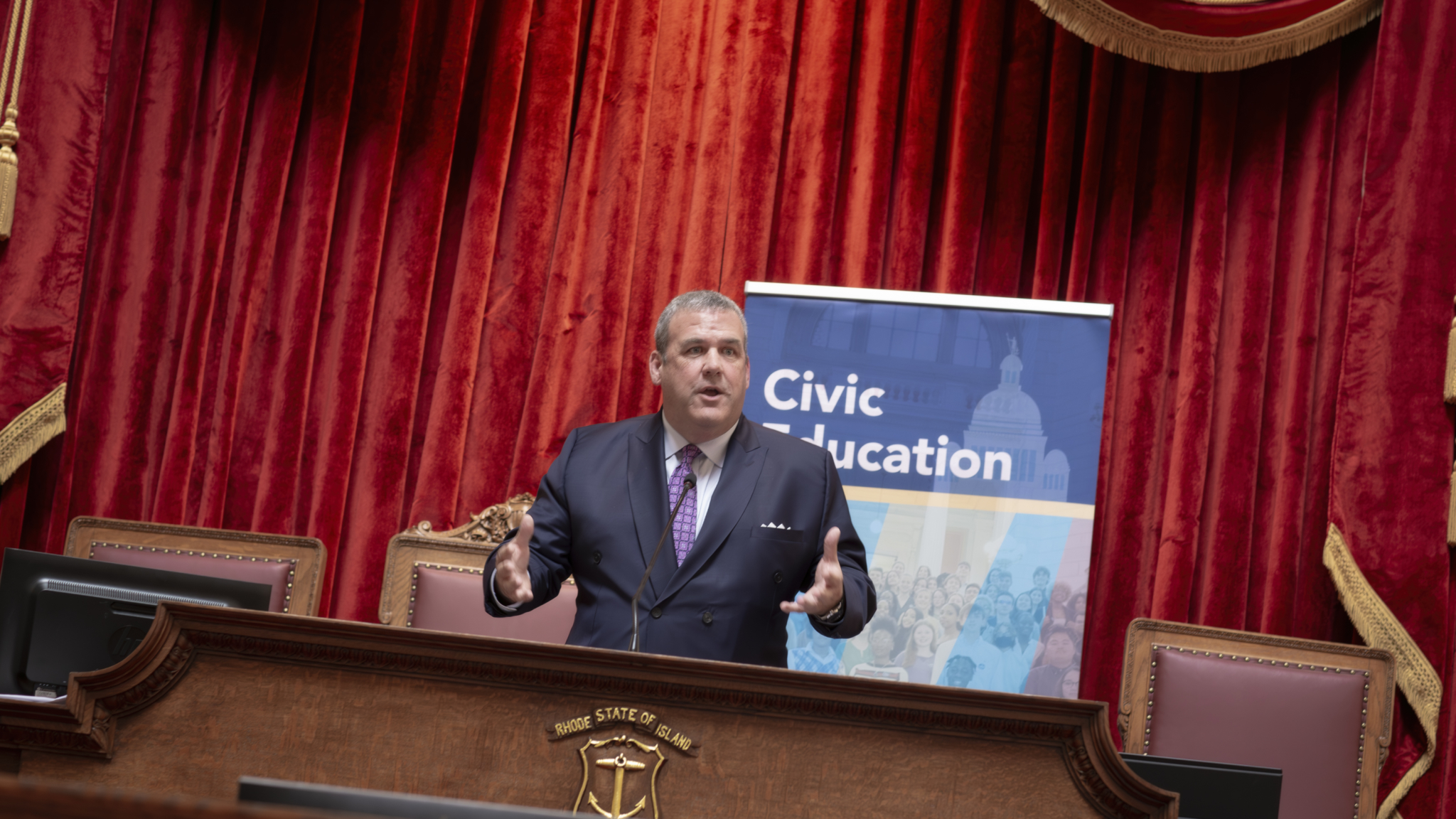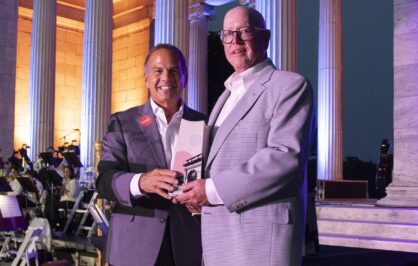
Civic Leadership
Fostering a lifelong passion for public service and civic action
More than 85 students from 41 high schools throughout Rhode Island participated in Secretary of State Gregg M. Amore’s Student Civic Liaison Program.
Since June 2023, the program has introduced local students to government and community leaders through monthly workshops. These workshops also serve to facilitate collaboration around civic action projects in the participants’ own communities.
“I’ve spent my first year as Secretary of State visiting local classrooms to talk about civic engagement and meeting with students at the State House, so I know that Rhode Island is home to engaged students who are seeking opportunities to become more involved with their state and local governments, and democracy as a whole,” said Secretary of State Amore.
In one recent month, program participants took over a General Assembly chambers lounge at the State House to have a passionate discussion about equity—raising issues such as the lack of teachers of color, redlining and the special treatment honors and advanced placement (AP) students receive in comparison to multilingual learners (MLL).
“Civic engagement is my love language because that is the way to transform communities,” said Jessica Vega, senior policy analyst for Rhode Island KIDS COUNT. “We are losing that opportunity if we are not tapping into these young minds." She and the leaders collectively agreed that the real experts that night were the students. These young civic leaders were commended to speak out more, and to keep taking full advantage of the services and advocacy available through Secretary of State Amore and the Program.
The inaugural program culminated last month with the first-ever Rhode Island Civic Leadership Summit, initially funded by the Rhode Island Foundation. The three-day Summit offered students the opportunity to collaborate more with their peers, participate in professionally guided workshops, and encouraged them to think critically about issues and evaluate potential solutions.
Using an educational software program that allows for real-time feedback, two teachers quizzed the students about state government, prompting them to name the executive officers in Rhode Island, as well as their job descriptions and necessary qualifications. A few hours later, they would have the opportunity to talk in person with the Governor, Lt. Governor, Secretary of State, and the Attorney General, as well as a representative from the General Treasurer’s office, to quiz them about the actual backgrounds that led them to elective office.
Day two started at Garrahy Judicial Complex, where they were invited by Judge Melissa DuBose to observe courtroom proceedings in District Court. Supreme Court Chief Justice Paul Suttell welcomed them to the Licht Judicial Complex. He led a conversation on the importance of the Constitution in our democracy and RI’s legal system. Students then connected with the Judiciary Employment Education Program (JEEP) to hear about potential career choices as well as requisite skills and qualifications for employment within the state’s judiciary branch. They visited the State Law Library, and shared a meal with RI’s Committee on Racial & Ethnic Fairness in the Courts.
Back at the State House with the legislative branch: A panel discussion involving the bipartisan leaders of the RI General Assembly—House and Senate— provided an opportunity for students to ask questions about how the General Assembly functions and the unique leadership roles. House Speaker K. Joseph Shekarchi commented that “the impressive group of young leaders asked thoughtful questions—we had a great conversation.”

Finally, students got a feel for government in action by participating in a mock legislative session regarding a proposed Assault Weapons Ban. Students—assigned roles as Independents, Republicans, and Democrats—heard firsthand testimony before debating the legislation on the House floor.
“Community foundations begin with community,” said David N. Cicilline, the Foundation’s president and CEO. “Supporting civic education will deepen community engagement and build the connections that are crucial to our work improving education, health care, and economic opportunity for all.” The Foundation, through its establishment of a new philanthropic fund to benefit the Department of State’s non-partisan programming, together with other supporters, made it possible for all the students to attend the Summit for free.
"The goal of the RI Civic Leadership Summit is to foster a lifelong passion for public service and civic action, whether that be in government, the non-profit community, or corporate stewardship,” says Secretary of State Amore. “I am confident that the Civic Leadership Program and its Summit will be impactful, meaningful, and change-making for these emerging leaders in our state.”


